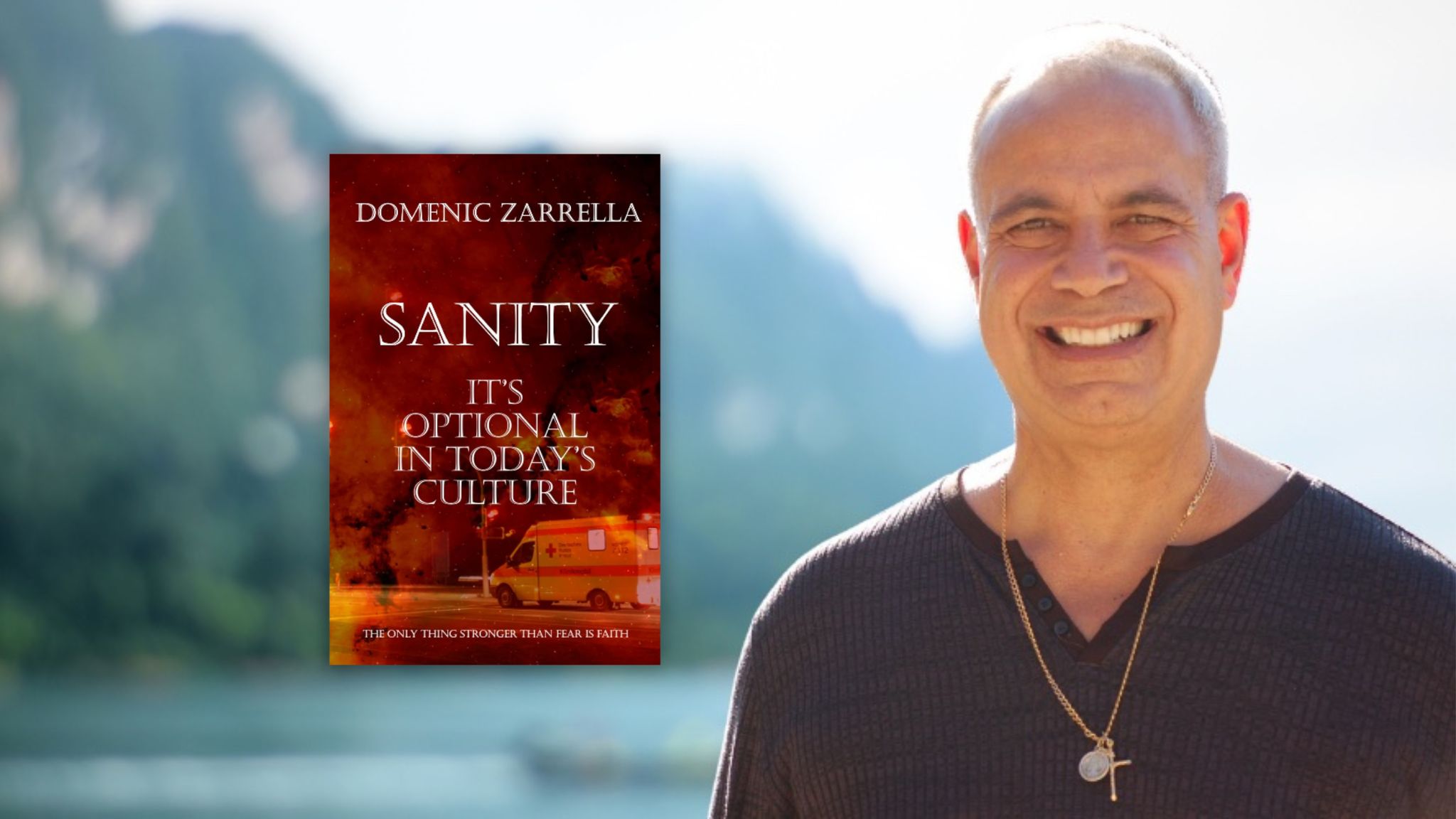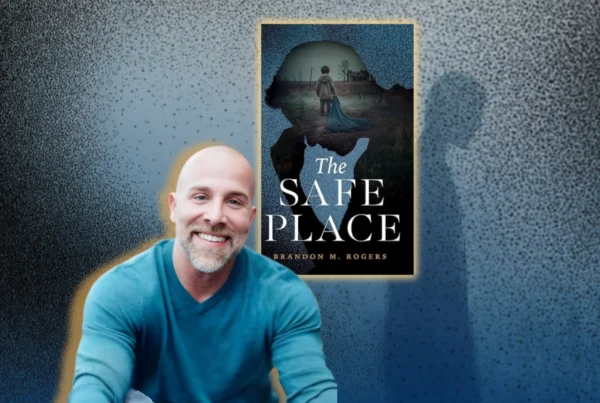Sanity: It's Optional in Today's Culture by Domenic Zarrella
Diagnosed with bipolar disorder in 1995, Domenic Zarrella knows the tricks the mind can play, and how those tricks can wreak havoc on one’s inner self. And now he has shared his insights into the mysteries of mental illness in his gripping memoir, Sanity: It’s Optional in Today’s Culture. “Have you ever wondered what was going on inside the mind of a loved one with mental illness when they did all those crazy things?” Zarrella writes. This book attempts to answer that question and help readers better understand the workings and struggles of people with bipolar disorder, schizophrenia, depression, anxiety, psychosis and other diagnoses. We got a chance to talk with the author about his motivation for writing this deeply personal memoir, and how he hopes his musings will bring understanding to readers. Q: What first inspired you to write this book? A: I wrote this book for my two oldest daughters, who walked with me through nine months of manic and psychotic mental illness, including two psychiatric hospitalizations. It’s an attempt to explain to them what was going on internally when they witnessed what was going on externally. I did some crazy things, and put them through a lot of anguish, so I hoped to provide some answers. In the process of writing it, I discovered that it could benefit other loved ones of the mentally ill, to aid them in feeling what their loved one is feeling, as an outlet for their pain, and to give them hope that their loved one can overcome. Also, I wanted to witness to how I leaned on my Catholic faith for guidance and strength to triumph over the mystery of mental illness. Q: You’re very open about your own mental health journey and the difficulties that have come with that. What do you think are the biggest challenges that keep people from seeking help — or from understanding others who are struggling? A: Uncertainty! Uncertainty is the biggest challenge that keeps people from seeking mental health help. Is what I’m feeling really mental illness? What will happen to me? Will they put on meds? And if so, what are the side effects? If I admit that I have mental illness, will others discount my feelings and opinions? Will I lose my job or be an outcast? The biggest challenges that keep the loved ones of the mentally ill from understanding are related to being totally incapable of feeling what it’s like to have depression, mania, psychosis. The crushing fatigue, the anxiety (worry combined with stress). Also, the lack of knowledge that these symptoms can be either biological or situational — meaning that they cannot simply be overcome by thinking more positively, although that is certainly a part of the problem. Q: Elaborate a bit on the title Sanity: It’s Optional in Today’s Culture. What do you hope to reassure readers with when it comes to dealing with mental health in modern society? A: I want to reassure readers that if we just slowed down, put down our laptops and maybe even took Sunday off for relaxing with family and friends, we could relieve the burnout that is causing the majority of our mental illness. I ask the question: “In our insane society, is anyone sane anymore? And if you are, is it to your advantage or disadvantage?” With the addiction and suicide rate, divorce and broken families, political and employment uncertainty and unrelenting wars, are we really living in a sane society? I also ask the question: “Is God the answer to the challenges facing our insane society?” Even simply starting your faith journey with just prayer expands your prospects of achieving sound mental health by removing the burden on yourself. But if you want to go one step further, attend mass or religious services every week. Q: Was it cathartic to write this book? Were there scenes that were more difficult to write than others? A: Many people ask me that. Yes, it was cathartic … I let the emotions out of my soul and onto the paper. I relived painful experiences and processed them productively into a book that could help others do the same. It didn’t help make sense of the whole experience, but that is the power of faith; to relinquish control of our lives to someone greater. It was very painful and difficult to write about the second Psych Ward Emergency Room visit within six months, when my two daughters needed to threaten to commit me (section 12) because I wouldn’t allow the doctors to admit me. I eventually relented and went on my own volition, but I regret the pain and frustration I put them through. I don’t know what would have happened to me if they couldn’t look beyond my illness and handle me delicately. Q: Who do you hope picks up your book? A: I hope the loved ones of the mentally ill read this book. I hope it gives them hope. I also hope that the mentally ill themselves read this book and say, “Yes, that’s exactly what it feels like”. Q: Do you have any other projects in the works that you can tell us about? A: I wrote an 8-page E-book titled Five Steps to Releasing the Tension Between You and Your Mentally Ill Loved One. In a nutshell, it guides you on how to back off from all the anger and frustration that is blocking communication between the loved ones of the mentally ill, and the mentally ill. It also encourages introducing faith into the situation. It’s available for free on my website SanityTheBook.com. I’ve also given a few talks to High School students to help them identify mental illness in themselves and understand it better in their loved ones. I’m not a psychiatrist or counselor, but I understand my own symptoms and am able to demonstrate a case study of my journey. And I’ve given the same talk to college nursing students because they may encounter individuals in their practice. I’d like to give more of these talks. You can contact me at domenic@sanitythebook.com. Born in 1961 when mental illness wasn’t talked about and treatments were almost medieval, Domenic Zarrella had no idea that what afflicted him upon graduating from college was major depression. Diagnosed in 1995 with bipolar disorder with psychotic features, he had suffered the sadness, fatigue, and self-medication through alcohol for 12 years until being diagnosed after a manic/psychotic episode. After three hospitalizations and many psychotropic drug combinations, he lived a seemingly normal life until going off his medications in 2018. His insights into the mystery of mental illness can benefit anyone afflicted by this menace, or their loved ones. Visit www.sanitythebook.com.
Born in 1961 when mental illness wasn’t talked about and treatments were almost medieval, Domenic Zarrella had no idea that what afflicted him upon graduating from college was major depression. Diagnosed in 1995 with bipolar disorder with psychotic features, he had suffered the sadness, fatigue, and self-medication through alcohol for 12 years until being diagnosed after a manic/psychotic episode. After three hospitalizations and many psychotropic drug combinations, he lived a seemingly normal life until going off his medications in 2018. His insights into the mystery of mental illness can benefit anyone afflicted by this menace, or their loved ones. Visit www.sanitythebook.com.





